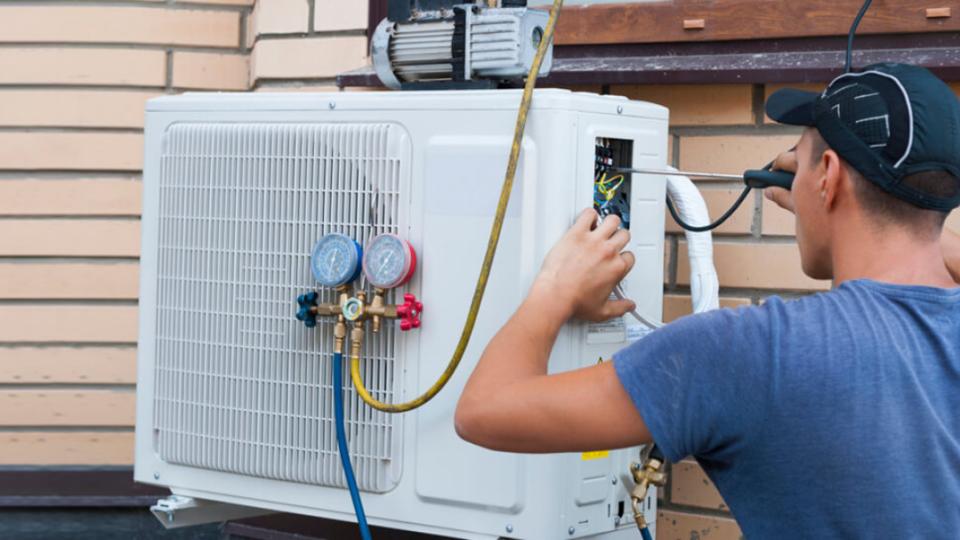As the winter months approach, it's essential to ensure that your HVAC (Heating, Ventilation, and Air Conditioning) system is in optimal condition to provide you with the warmth and comfort you deserve. Neglecting your heating system can lead to inefficiency, breakdowns, and higher energy bills. In this comprehensive guide, we will explore the steps and considerations necessary to get your HVAC system ready for winter, ensuring a cozy and cost-effective season.
Understanding the Importance of Regular HVAC Maintenance
Regular HVAC maintenance is crucial, as it not only ensures the efficient operation of your heating system, but it also extends its lifespan and helps prevent costly repairs. By performing routine maintenance, you can identify potential issues before they escalate, saving you from unexpected breakdowns during the coldest months of the year.
I. Checking and Replacing Air Filters
Air filters play a critical role in maintaining the air quality and efficiency of your HVAC system. Clogged or dirty filters restrict the airflow, making your system work harder to achieve the desired temperature. This can result in decreased efficiency and increased energy consumption.
To optimize the performance of your heating system, check your air filters monthly and replace them if they appear dirty or have been in use for more than three months. By keeping your filters clean, you not only improve indoor air quality but also enhance the overall efficiency of your HVAC system.
II. Clearing Obstructions from Vents and Registers
To ensure efficient heating throughout your home, it is important to inspect and clear any obstructions from your vents and registers. Furniture, rugs, and other items can block the airflow, reducing the efficiency of your heating system. By keeping these areas clear, you allow warm air to circulate freely, creating a more comfortable living space.
III. Checking Thermostat Functionality
The thermostat serves as the control center for your HVAC system, dictating the desired indoor temperature. To ensure optimal performance during the winter season, it is important to check the functionality of your thermostat.
Test your thermostat by setting the temperature a few degrees higher than the current room temperature. Observe if the system responds accordingly and if the thermostat accurately reflects the temperature. If you notice any discrepancies or issues, consider calibrating or replacing the thermostat to maintain precise control of your heating system.
IV. Professional HVAC Inspection and Tune-up
While there are several maintenance tasks you can perform on your own, it is highly recommended to schedule an annual professional HVAC inspection and tune-up. HVAC technicians have the expertise, tools, and knowledge to identify potential issues and address them before they become major problems.
During a professional inspection, the technician will thoroughly examine your heating system, clean critical components, and perform any necessary adjustments or repairs. This proactive approach can help optimize your heating system's efficiency and identify potential problems early on, ensuring a warm and reliable winter season.
V. Identifying and Sealing Air Leaks
Air leaks in your home can significantly impact the efficiency of your HVAC system. As warm air escapes, your heating system works harder to compensate for the loss, resulting in higher energy consumption and reduced comfort.
Inspect windows, doors, and other areas where drafts may occur. Seal any noticeable gaps or cracks with weatherstripping or caulk to prevent warm air from escaping and cold air from entering your home. This simple step can make a substantial difference in both energy efficiency and overall comfort.
VI. Cleaning and Inspecting Air Ducts
Over time, dust, debris, and other contaminants can accumulate within your air ducts, diminishing indoor air quality and impeding your HVAC system's efficiency. Having your air ducts professionally cleaned can help alleviate these issues, ensuring cleaner air and better performance from your heating system.
Additionally, it is important to inspect your air ducts for any signs of damage or leaks. Damaged ductwork can result in heated air being lost before it reaches your living spaces. Seal any leaks or consider repairing or replacing the damaged sections to maximize the efficiency of your HVAC system.
VII. Considering Energy-efficient Upgrades
As technology advances, so do the options for energy-efficient heating systems. If your current HVAC system is outdated or inefficient, it may be worth considering an upgrade to a more energy-saving model.
Energy-efficient heating systems not only help reduce your carbon footprint but can also result in significant cost savings over time. Consult with a professional HVAC technician to assess your options and determine the best heating system for your specific needs, ensuring effective and efficient heating throughout the winter season.
In conclusion, taking proactive steps to prepare your HVAC system for winter is essential for optimal comfort and energy efficiency. By adhering to regular maintenance, cleaning air filters, inspecting air ducts, and addressing potential issues through professional inspection, you can ensure a cozy and hassle-free winter season. Remember, a well-maintained heating system not only keeps you warm, but it also contributes to lower energy bills and a healthier home environment. Keep your HVAC system in top shape, and embrace the winter months with warmth and comfort.
Reach out to a TrustDALE certified professional for all your HVAC needs and don't forget you're always protected by The TrustDALE $10,000 Make It Right Guarantee™.

